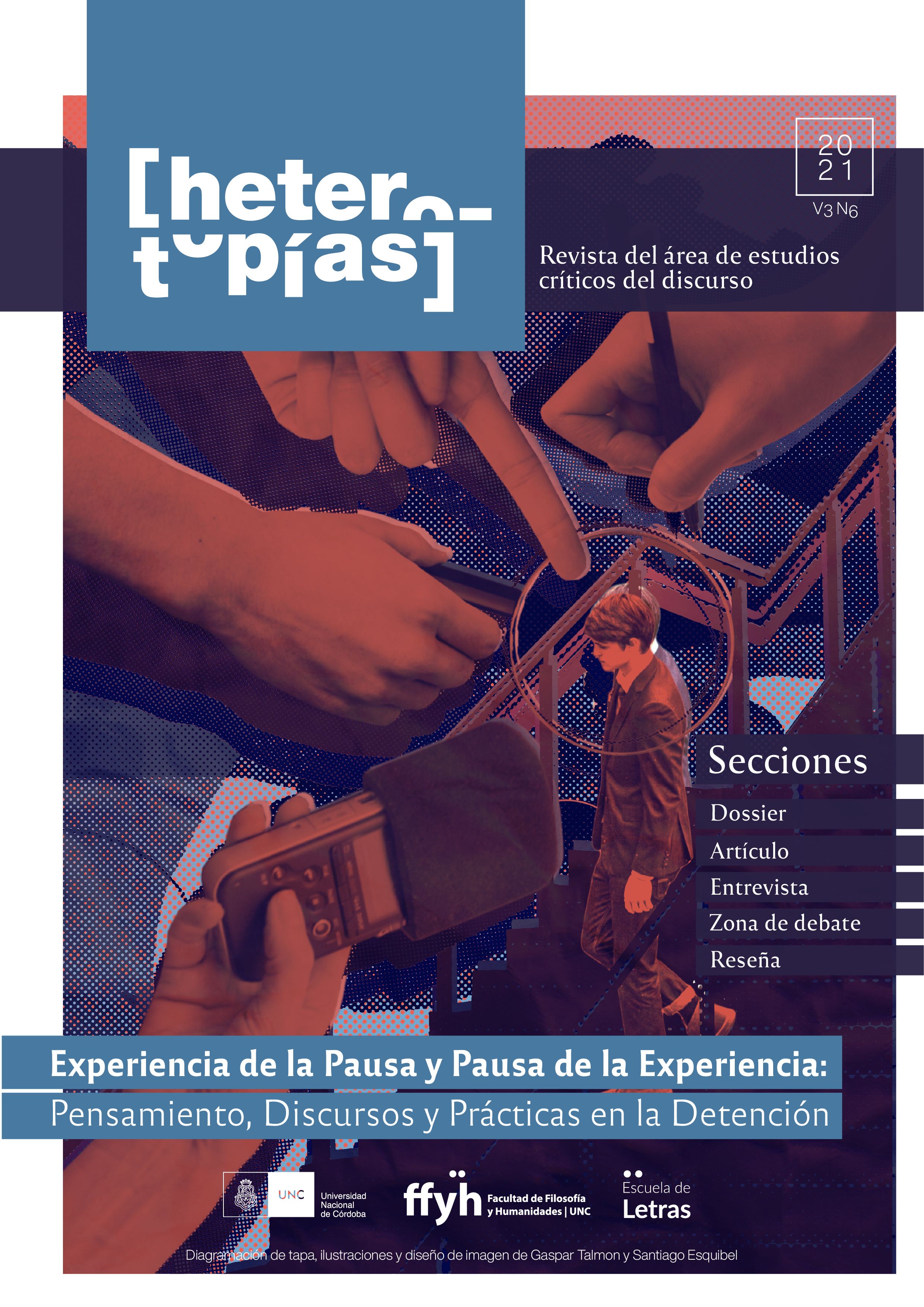Structures of feeling: revisiting a notion to study the ways in which sociocultural transformations are experienced and embodied
Main Article Content
Abstract
Abstract: The work that follows is a revision and exploration of a central concept of cultural studies, the "structures of feeling", by one of the main authors of this tradition, Raymond Williams. The text is presented as an essay guided by the interest or motivation to enrich the theoretical or methodological imagination to study current cultural phenomena from the definition, reflection and re-contextualization of this concept and of this author’s work. Fundamentally, it concentrates on the aspects in which this concept can serve to theorize sociocultural processes and changes and shed light and attention on a key dimension —that of feelings and affections— to understand the modalities in which contemporary transformations are experienced and embodied. The text also makes a brief critical journey through the theoretical and methodological challenges of this notion, and suggests some ideas about the paths that can be followed from it.
Downloads
Article Details

This work is licensed under a Creative Commons Attribution-NonCommercial-ShareAlike 4.0 International License.
Those authors who have publications with this journal, accept the following terms: Those authors who have publications with this journal, accept the following terms:
a. The authors will keep their copyright and guarantee to the journal the right of first publication of their work, which will be simultaneously subject to the Creative Commons Attribution - Non-Commercial - Share Alike (by-nc-sa) Attribution License; no commercial use of the original work or any derivative works is allowed, the distribution of which must be done with a license equal to the one that regulates the original work.
b. Authors may adopt other non-exclusive license agreements for the distribution of the published version of the work (e.g., deposit it in an institutional telematic archive or publish it in a monographic volume) provided that the initial publication in this journal is indicated.
c. Authors are allowed and recommended to disseminate their work through the Internet (e.g. in institutional telematic archives or on their website) before and during the submission process, which may lead to interesting exchanges and increase the number of citations of the published work. (See The effect of open access).
How to Cite
References
Beasley-Murray, J. (2010). Poshegemonía: Teoría política y América latina. Buenos Aires: Paidós.
Bourdieu, P., Chamboredon, J. C., Passeron, J. C., (2002). El oficio de sociólogo: Presupuestos epistemológicos. Madrid: Siglo XXI.
Barker, M., y Beezer, A. (1994). Introducción a los estudios culturales. Barcelona: Bosch.
Cevasco, M. E. (2003). Para leer a Raymond Williams. Buenos Aires: Universidad Nacional de Quilmes.
Eagleton, T. (2005). Ideología: Una introducción. Barcelona: Paidós.
Geertz,C. (1988). La interpretación de las culturas. Barcelona: Gedisa.
Geertz,C. (2000): Negara. El Estado-teatro en el Bali del siglo XIX. Barcelona: Editorial Paidós.
Grossberg, L. (2017). “Stuart Hall: diez lecciones para los estudios culturales”. Revista Intervenciones en estudios culturales, 3(4). https://intervencioneseecc.files.wordpress.com/2017/07/n4_art02_grossberg.pdf
Hall, S. (2010). Sin garantías: trayectorias y problemáticas en estudios culturales. Eduardo Restrepo, Catherine Walsh y Víctor Vich (Eds.). Instituto de estudios sociales y culturales Pensar, Universidad Javeriana, Instituto de Estudios Peruanos, Universidad Andina Simón Bolívar sede Ecuador, Envión Editores.
Hall, S. (2017). Estudios culturales 1983: Una historia teorética. Buenos Aires: Paidós.
Hoggart, R. (1990). La cultura obrera en la sociedad de masas. México: Grijalbo.
Jameson, F., Žižek, S. (2008). Estudios culturales: Reflexiones sobre el multiculturalismo. Buenos Aires: Paidós.
Lahire, B. (2006). El espíritu sociológico. Buenos Aires: Manantial.
Larrosa, J. (2000). Escuela, poder y subjetivación. Madrid: Piqueta.
Sarlo, B. (1993). “Raymond Williams: una relectura”. Punto de vista XVI: 45, Buenos Aires. 12-15.
Storey, J. (2012). Teoría cultural y cultura popular. Barcelona: Octaedro.
Thompson, E. P. (2012). La formación de la clase obrera en Inglaterra. Madrid: Capitán Swing.
Williams, R. (2000). Marxismo y literatura. Barcelona. Ediciones Península.
Williams, R. (2001). Cultura y Sociedad 1780-1950. De Coleridge a Orwell. Buenos Aires: Nueva Visión.
Williams, R. (2003). La larga revolución. Buenos Aires: Ediciones Nueva Visión.
Williams, R. (2008). Palabras clave: Un vocabulario de la cultura y la sociedad. Buenos Aires: Ediciones Nueva Visión.
Williams, R. (2015). Sociología de la cultura. Buenos Aires: Paidós.
